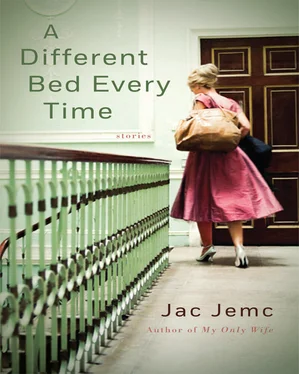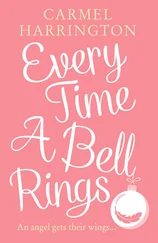Let Me Be Your Tugboat King
Listen, I’m ready for you to come right over here, darling, and dance with me. We’re pulling in the weight of what we’re waiting for. Dance it down for me. Let me see your sequins shimmer and shake. I want the breeze of all those sparkles to blow me right off this tugboat. We’re getting down, all dancing equal, mismatched pulses, wanting nothing more than to keep moving and I?
I will be your tugboat king. I will call the do-si-dos, and the skip-to-my-lous. Hokey Cokey! Shimmy! Whip out a Watusi for me! We have flipped and landed decent. Now is when the crowd forms to clap and keep rhythm. No cardboard laid down, we are skull-spinning because that’s what it’ll take.
Turn the music up. It’s time to move. Shake it out. Warn the neighbors: this’ll go late. Ring that bell like pure silver. Swing it around. Here it comes: We’re clear out of black and white into Technicolor: Set your eyes up for all this seeing.
Your tugboat king is doing the hustle, the Charleston: I’m ready to boogaloo: I’m foxtrotting: I’m locomoting, twisting, shouting: I’m working out a hully gully here: Do what I do.
I have this soul that’s full of soil, and be honest: is there anything more terrifying than a stem showing up from the nowhere of below? My engagement stretches string thin. Someone gave out my lock combinations. My corners are chipped. The flesh beneath reveals a pleasant surprise. The beetles seem brighter in the pitch-black night. I am night. I am bells. I am tongues of noon. I watch a bee born in the quaintest moment. The body cancels the soul. I say prayers and rap on windows to be let in. I feel the shame slide through my smirk. I have a bruise the size of a handful. I populate men in a way that will surely someday be recognized. I sleep with skeptical ghosts. I carefully watch their mouths open. I frame babies with my body. I hang myself on others. Am I missing chances?
No, this feels nice: these mouths. I want to be banished. I want to return. I want to fascinate someone’s ignorance. I want to shake coins from myself. I want to fill my bathing suit with corkscrews. I want to marrow and curdle. I want to smell of elderberry and hair. I want to watch the algae blossom on my bed post. I want to feel the pain stutter up. I want to mourn, slow and plump. I want the battle to grow deep and homesick. Am I lost or found?
No, the lost are an invention of the finders. I have seen the clock, chalked and lisping. I have seen surgeons overcome by pieces of puzzles. I have adjusted, become all iris and anemone. I have been strange and inviting. My nerves have been my foes: a dull caper. I have written boring poems like thick thighs. I have watched the ceiling ride around the room. My mentors have torn my work apart like chicken bones. I have been cracked open, jacked off, spiraled up. Where am I now in this careful aging?
No, this is a becoming. This is a yearly debut. This ballroom black-foots. On the dance floor, I am a landlocked country. I am doused in limericks, needles, tatting. When you dance around me I become thumb knots and tack bends. I run stunt kites up into your hair with my hands. You glide joints. I celebrate High Holy Days. I fiddle your arms with my arms. I exhale like a rocking horse. My gown reveals me.
There was once a lovely party held in the home of a wealthy baron.
This party was thrown when big parties were still a grand yet fathomable thing.
This party happened back when every woman’s figure was enlarged by the concentric circles of the layers of her dress.
One would likely never encounter the best of one’s friends at one of these parties because it was so crowded. They called this the “crush.”
One reserved one’s largest, most genuine smiles for those one didn’t know.
A large stone terrace held men smoking thin cigarettes and women who pulled their delicate shawls more tightly around them.
This party took place before it became chivalrous to give a woman one’s suit jacket to keep her warm.
To be so common as to need additional warmth from something so unfashionable as a suit jacket was unthinkable. One would certainly not have been invited back.
Conversations tittered on every balustrade.
Women in long black gloves leaned into the men with whom they spoke to whisper secrets behind their satiny fingers.
These men, so used to being coldly dismissed by the light of day, now well oiled with sherry and champagne and cognac, they placed daring hands on the arms, the shoulders, even the waists of girls who would then shift their body weight, apply the perfect amount of returning pressure.
Heads tilted down and eyes leaned up, the angles of seduction.
The conservatory was reserved for further flirtations.
It wasn’t proper to dance more than twice with the same partner.
Old men spoke with choruses of widows. One outrageous comment would be boomed from a deep-barreled chest and a round of agreement, of embarrassed giggles, of silently smiling heads shaking would erupt from the audience of women who hadn’t spoken to anyone besides their servants for days.
“How do you do?”
By the end of the night, trickles of wax decorated the men’s epaulets. Such was the intoxication of the conversation, that they would be so carried away, driven to absent-mindedness, and converse under the dripping chandeliers.
The light of the room forecasted antiquity. The candles cast a sepia glow on the porcelain skin of men and women alike: these people who were used to waking at noon, dressing till two, and emerging for the society of the home just as the sun was setting behind old trees lining the path leading to the entrance.
Supper began at midnight.
A solitary wallflower, a genus that bred well in all ballrooms, broke into a conversation and reminded a man of his promise, showing him her dance card. He looked away from the bright young thing with whom he’d been talking and reassured the wallflower, “There’ll be time enough for dancing.”
She believed him; the night held so much.
Almost everyone had been to parties at the baron’s home before, and weren’t they all unsurprising? Didn’t all of his parties feel just like all the other parties? Lovely to anticipate, even more enjoyable to recall at the next party, but just a present chore.
Hadn’t someone said of the baron’s last party that “the champagne was undrinkable,” that “the pâte de foie gras tasted like kitten”? (And everyone had laughed, nodding, not asking the speaker how he knew the taste of kitten.)
The flowers flung into buttonholes this evening were mostly carnations, nothing particularly fancy.
The cane-bottomed benches that had been imported for extra seating remained empty all evening, only made the rooms smaller, pushed people closer together, farther from the walls. People remained on their feet, moving fluidly between groups. This was not an evening where one was always searching for a better conversation, but rather people couldn’t contain themselves, talked over each other and at once. Every guest had a slew of things they wanted to say to many different people and all at the same time. So while couples grasped hands, shoulders, waists and counted the down up up one two three silently on the expansive dance floor, others in the parlor waltzed from cluster to cluster, touching down with a comment and then lifting in two steps to the next crowd, leaving a trail of riotous laughter behind, already evoking the next round from the imminent group.
After the seven waltzes came four galops, a polka, a polka-mazurka and then a quadrille to round the evening out.
Читать дальше












